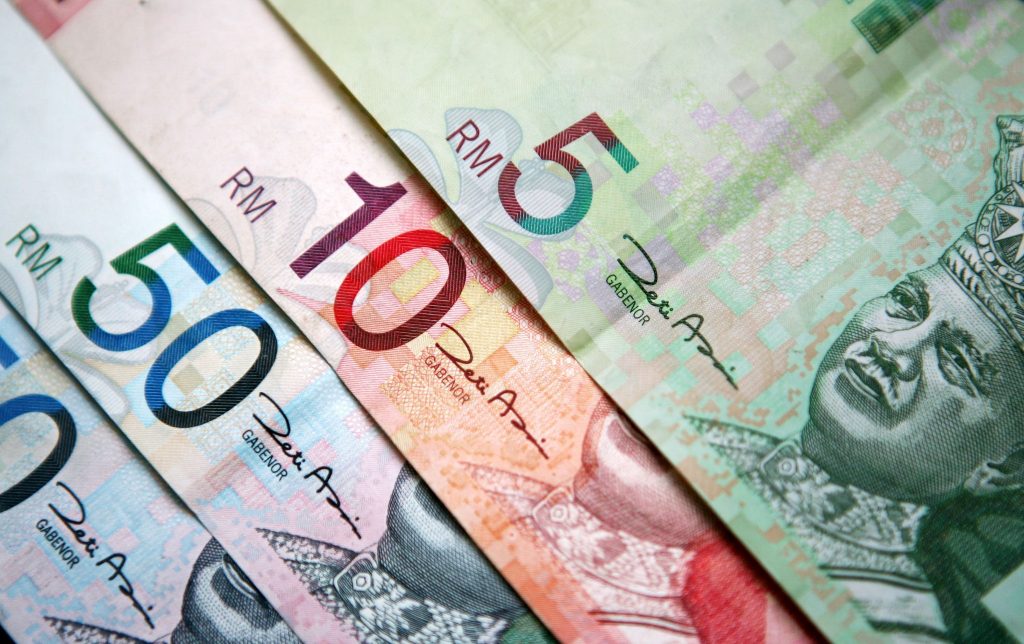Managing your finance and expenses can be very challenging, especially when you earn a mediocre salary and have got commitments like rent and your car loan. For this reason, we got in touch with the Chief Finance Officer of Savings Plus, Mr. Liew Ooi Hann, for some tips on how we can start budgeting wisely to avoid accumulating unnecessary debts and the importance of doing so, especially during festive seasons.

Q: With the current economic turmoil, how can Malaysians manage their expenses better during festive seasons?
You need to be able to differentiate your needs and wants, especially during the festive season. Needs are things like new clothes, because it’s tradition. Another need is food, because one cannot run from eating during the festive seasons. To distinguish wants, for example, you don’t need to have 10 pairs of new baju Raya. That’s a subtle difference, but it makes a difference.
Try this four-step plan:
- Plan: Plan out what you’re going to buy and what you’re going to do for the holidays. Get a list of things you want and need, then allocate a budget.
- Research: Before actually making your purchases, do your research. One example is changing your car as there are plenty of festive offers available. See what suits you and has the best offer. This applies to every single product that you’re planning to get this festive season.
- Find: Go and get it yourself, don’t rely on somebody else. You’ve done your research; you’ve got a plan and now you need to get all your things in a systematic way.
- Review: Review what you’re getting against the plan you made earlier. Check the list and compare your spendings against your budget. Try to make adjustments.
Q: How should Malaysians tackle the festive seasons with GST in mind?
GST is still extremely poorly understood. GST was introduced in April to replace the existing tax system called SST, the Sales and Services Tax. If you remember going to McDonald’s before GST, at the bottom of the receipt there is something called a government service tax, which was 6%. That has just been replaced with the goods and services tax, which is also 6%. Most eateries have this tax, so there is no change.

Q: How does the deteriorating currency exchange affect Malaysians when it comes to travelling and investing money overseas?
Imported goods will become more expensive. Things that you normally buy which are imported, but you didn’t know were imported, would have an outward pressure on price. Be mindful of what you’re buying and where it comes from because it makes a difference.
To answer the last part of the question, which is for investing overseas, if Malaysians are investing overseas, they would have benefited from the Ringgit depreciation because their assets are in an overseas currency.
Q: What are the common post-festive season mistakes made by consumers?
It depends on what you do during the festive season. Plan and once you’ve decided on how much you want to spend for the festive season, think about how you’re going to finance that expenditure. The two most common ways for Malaysians would be through a credit card or personal loan.
The question is, how long would you take to pay off this debt? If you can pay off your Raya spending within a month or two, I would advise to get a credit card. If you are unable to cover your Raya spending within the next couple of months, I would say get a personal loan.

Q: Why get a personal loan instead of a credit card?
Credit cards offer interest-free credit for up to two months, so it incurs very little interest. If you are unable to pay after the interest-free period, the interest rate for credit cards is significantly higher than the interest rate for personal loans.
You can get a personal loan from anywhere between 4% to 7% flat, which is 8% to 12% on an analysed basis. It’s lower than the credit card interest which can range from 12-18%. It won’t solve the problem, but it will help when people are thinking about how to plan for the festive seasons so they can manage their debt.
Q: If a person has overspent, how is the person going to manage his/her debts over time?
Let’s say you’ve got it all on a big personal loan, or you’ve maxed out your credit card. One way to overcome this is a credit card balance transfer. Most banks in Malaysia have a programme called a balance transfer programme.
This means that when you get a new credit card with this banking institution, you can use it to pay off your existing debts which are incurring interest. These offers come with an interest rate much lower than typical credit card interests, and sometimes even 0% for a number of months. Most banks in Malaysia have anywhere between 6 to 12 months of 0% balance transfer. It won’t pay off your debt, but at least it will buy you some time to pay it off and you do not have to incur the interest on the debt.

Q: How much in terms of percentage of one’s salary should be made a budget for the festive seasons?
When you’re planning your spending for the festive season, it’s really about managing the balance between what you need and what you want. To get your percentage, ask yourself these three questions:
- Do you really need it, or do you actually just want it?
- If you really need it, can you actually afford it?
- If you can afford it, can you get it cheaper somewhere else?
The percentage of your salary that should be put aside isn’t as important. Ask yourself these questions and apply the four-step plan I told you earlier, and
As long as you ask yourself these three questions, apply the four-step plan I’ve mentioned earlier, and adjust to your current financial situation, you should be able to meet your spending goal without having created any major debts.
Q: Is there any other alternative than giving duit Raya as it is? What other financial alternatives that will help create more value in return for Raya?
For children and youths, I strongly encourage parents to set up a quick fixed deposit account for them, rather than giving them actual cash. Opening a quick deposit only requires RM100. You can also teach them the importance and the value of money.
Another way you can educate older children on the value of money is to help them invest their duit Raya into a Skim Amanah Saham Bumiputra (ASB) account. All you’d need to do is add another RM100 on top of the duit Raya. You can encourage them to check their ASB book and watch the amount of money grow over time. This way, it teaches them the value of investing and saving for their future.

Savings Plus Sdn Bhd
Saving Plus is a merger of two websites – RinggitPlus.com and savemoney.my. The objective of RinggitPlus.com is to help consumers make smarter financial decisions. The website provides thorough information on each financial product to help consumers find the most suitable product for their financial behaviours. Savemoney.my is a financial education portal where consumers can gain information on personal finance welfare and educate themselves on managing their personal finances.









